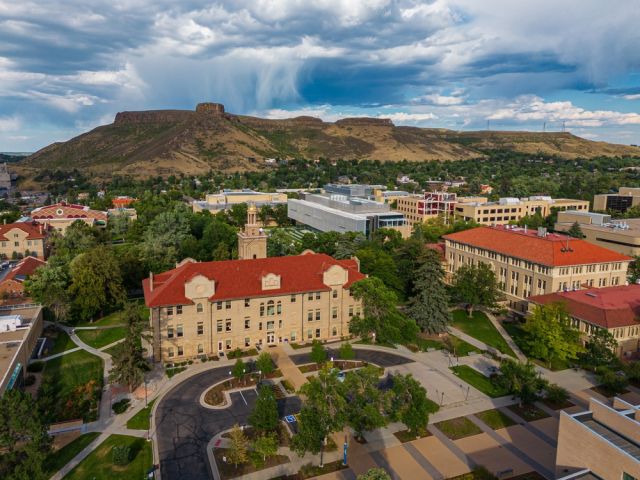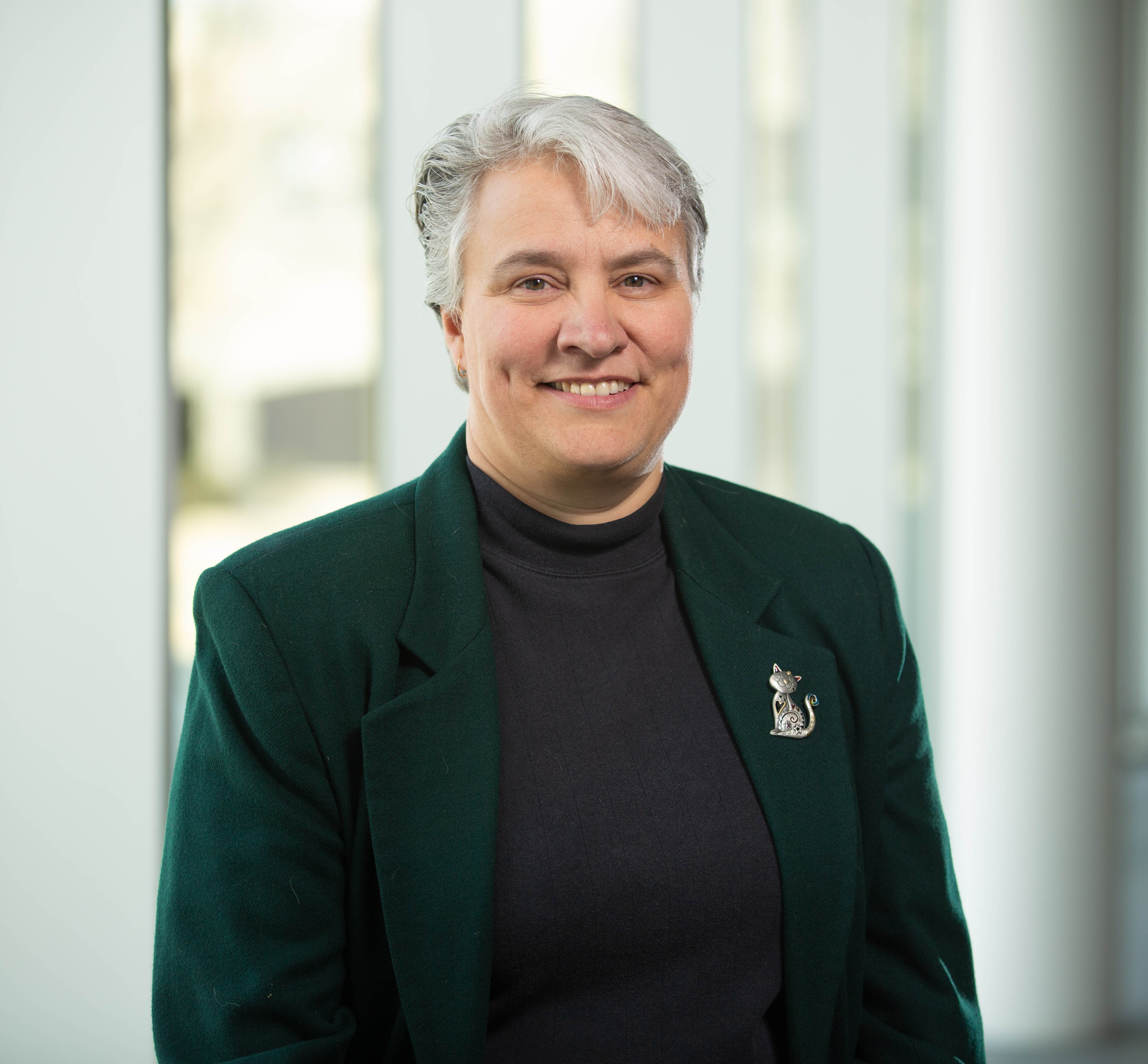
Colorado School of Mines administrative building in Golden, Colorado. (Source: Shutterstock)
GOLDEN, Colorado — Petroleum engineers will be at the center of the future energy industry, whether it’s the energy transition, geothermal or old-fashioned oil and gas.
Admittedly, this is a bit of a biased viewpoint from Jennifer L. Miskimins, F.H. Mick Merelli/Cimarex Energy distinguished department head and chair of the petroleum engineering department at the Colorado School of Mines.

But the school is wrapping its programs around that future.
Whether it’s geothermal or carbon capture utilization and storage (CCUS), the school is playing the same role it’s played since 1874: preparing students for the energy future.
Miskimins recently spoke to Hart Energy about the school’s efforts to develop the next generation of oil and gas leaders, much as it helped to shepherd in the current crop.
Notable graduates include Christian Kendall at Denbury, John Christmann at APA Corp. and Robert D Lawler at Continental, are all a part of Mines’ class of 1988 and all presidents and CEOs. David Lawler, brother of Doug and former head of BP America, is Mines’ class of 1990 and a member of the school’s board of trustees.
Still, the oil and gas industry is doing what it does often and best: adapting.
“Traditional oil and gas is hedging its bets, expanding into carbon capture use and storage. We are starting to see strong interest in geothermal development. There are a lot of exciting opportunities in petroleum engineering,” Miskimins told Hart Energy.
Questions remain, of course. But some things Miskimins is pretty sure of.
“Traditional oil and gas is going to be around for a while because the energy transition is going to take decades,” she said. “About half of what I do is convincing people with the aptitudes we need that there is a future in our industry. Net zero is possible, and petroleum engineers are going to be at the center of that. I tell people: come be a part of the solution.”
CCUS and geothermal
One of the more exciting aspects of the energy transition is how developing nations can leap ahead. “The challenges the industry faces in North America and Europe are First World problems. Those are very real and they are playing out against the global reality that no one in the world is going to benefit until everyone comes up to some basic standard of living. Petroleum engineers are going to be at the center of that, too,” Miskimins said.
Nevertheless, Mines remains known as a school for learning the science behind oil and gas extraction. About 95% of graduates go to work in the sector.
But the school has also positioned itself on the cutting edge of engineering. It was the first major petroleum engineering school to offer a graduate certificate in CCUS in 2021. The school is considering ways to expand the program, including possibly offering a master’s program.
CCUS is one of the more natural fits for graduates, however.
“Petroleum engineering is all about fluid flow in porous media,” she added. “We are darn good at getting molecules out of and into the ground. So CCUS is taking skills we already teach. Mines has the whole package. We have faculty who have worked with CO2 for decades. We are absolutely set up to be the CCUS university.”
Likewise, geothermal also fits in with the petroleum engineer’s skillset.
“We just had our first graduate hired directly into geothermal,” Miskimins said. “Of course we’ve got a lot of alumni who started in traditional oil and gas and are now in geothermal.”
Miskimins said traditional geothermal involves finding hot, wet rock, bringing that hot fluid to the surface, and usually returning it.
“Then there is enhanced geothermal,” she said. “Which is finding hot rock, drilling one hole to deliver fluids, another to recover fluids, and then fracking between them. In this case we want communication between the well bores. It’s not interference, it’s intentional.”
Challenges
Miskimins laments that basic research has atrophied across the industry over the past decade or two.
“So many companies have gotten rid of their R&D centers,” Miskimins said. “Our graduates are still finding good jobs in industry, but they are not doing basic research; rather more applied development.”
That lack of investment poses other challenges for colleges and universities preparing the next crop of engineers.
She said that its understandable that large companies may be more eager to donate one large sum for a high-profile projects or facilities than several modest sums to sponsor students.”
That is especially true for grad students. “The big companies know that they are going to need a bunch of bachelors-degree holders in a year or two,” Miskimins said, “but there is less immediate demand for grad students.”
Still, many companies come to the school looking for talent.
“A lot of companies recruit here, and we get good sponsorships for research. That tends to come and go with the price of oil. My job is to get more sponsorship for students, faculty and the department as a whole.”
The challenge for the school, she said, is not the amount of money it can raise but its perceived profile. Mines enrollments consists of about 135 undergraduate students in petroleum engineering and 40 graduate students.
“The type of student who comes here is the one who does not want to be one of a big number of students on a big campus,” Miskimins said, adding with a laugh. “We also get the Texans who want to ski.”
In such a global industry, diversity isn’t among the most daunting challenges for petroleum engineering students as it may be in some other subjects. There is one notable exception: gender.
“Gender is still a challenge,” she said. “We’d love to see more women into the program.”
Miskimins stands out in that respect. She is the only female head of a major petroleum engineering program in the country.
Recommended Reading
PrePad Tosses Spreadsheets for Drilling Completions Simulation Models
2025-02-18 - Startup PrePad’s discrete-event simulation model condenses the dozens of variables in a drilling operation to optimize the economics of drilling and completions. Big names such as Devon Energy, Chevron Technology Ventures and Coterra Energy have taken notice.
Digital Twins ‘Fad’ Takes on New Life as Tool to Advance Long-Term Goals
2025-02-13 - As top E&P players such as BP, Chevron and Shell adopt the use of digital twins, the technology has gone from what engineers thought of as a ‘fad’ to a useful tool to solve business problems and hit long-term goals.
Halliburton, Sekal Partner on World’s First Automated On-Bottom Drilling System
2025-02-26 - Halliburton Co. and Sekal AS delivered the well for Equinor on the Norwegian Continental Shelf.
TGS to Reprocess Seismic Data in India’s Krishna-Godavari Basin
2025-01-28 - TGS will reprocess 3D seismic data, including 10,900 sq km of open acreage available in India’s upcoming 10th Open Acreage Licensing Policy (OALP) bid round blocks.
Artificial Lift Firm Flowco Prices IPO Above Guidance at $427MM
2025-01-15 - Flowco Holdings priced its IPO at $24 per share, above its original guidance. The oilfield services firm will begin trading on the New York Stock Exchange on Jan. 16.
Comments
Add new comment
This conversation is moderated according to Hart Energy community rules. Please read the rules before joining the discussion. If you’re experiencing any technical problems, please contact our customer care team.





